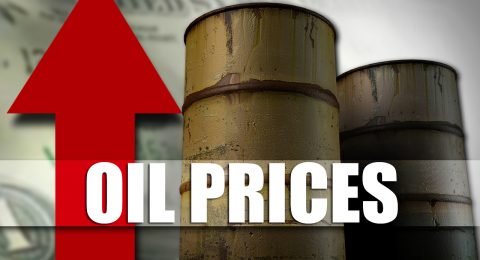Hailed as a clean energy solution, hydrogen is powering up decarbonization efforts across various sectors. As of October 2023, the industry boasts over 1,400 announced clean hydrogen projects, according to the Hydrogen Council’s “Hydrogen Insights 2023”.
At the forefront of this green revolution stands “green hydrogen,” produced through electrolysis powered by renewable sources like solar or wind energy. This method separates hydrogen from water, yielding zero carbon emissions. That would save the CO2 emitted from fossil fuels which reached about 34 billion tons of CO2 equivalent in 2022, as explained in the “CO2 Emissions in 2022” report published by the International Energy Agency (IEA). The demand for green hydrogen globally is burgeoning to replace fossil fuels. However, the current supply remains limited.
Egypt has embarked on a visionary path, spearheading initiatives and investments in the green hydrogen sector, aiming to establish itself as a leader in this transformative industry.
Egypt’s Strengths in the Green Hydrogen Landscape
Egypt’s strategic location serves as a pivotal advantage in the green hydrogen industry. The country is positioned at the crossroads of continents as an access to key trade routes. Egypt’s advantage gains substantial momentum in light of the European Union’s ambitious hydrogen deployment targets outlined in REPowerEU to import 10 million tons (mmt) of renewable hydrogen by 2030, as stated in the European Commission website.
Boosting green investment in Egypt, the Cabinet has established the National Council for Green Hydrogen and drafted a law outlining attractive incentives for green hydrogen projects. These incentives encompass several aspects, including investment benefits such as a cash incentive ranging from 33% to 55% of the tax paid, along with exemptions from value-added tax on equipment, tools and materials as well as means of transportation (excluding cars). Additionally, the public treasury will cover real estate taxes for project buildings, in addition to stamp taxes and documentation fees for company establishment. The law streamlines the approval process under the Investment Law, enabling project companies to independently or collaboratively manage imports.
Another privilege, Egypt is rich in abundant solar and wind energy resources, showcasing substantial capabilities to produce cost-competitive renewable energy. Looking at the operating capacity, Egypt ranked second in the Middle East and North Africa (MENA) region, after the Arab Emirates (UAE), with 3,730 megawatt (MW) from mid 2022-mid 2023, according to Global Energy Monitor data. Noting the government’s ambitious strategy, Egypt aims to raise the production of renewable energy to 60% by 2040, according to the Ministry of Electricity and Renewable Energy.
The National Strategy for Green Hydrogen
Egypt is one of 44 countries that have shown interest in formulating national strategies for producing green hydrogen, according to a report published by the Egyptian Center for Strategic Studies. Discussions on initiating the national strategy commenced in 2021, aiming to establish a regulatory framework facilitating domestic green hydrogen production. In November 2023, the national strategy got approval, gearing up for its submission to the Supreme Council of Energy. The strategy aims to empower Egypt’s transition plans as well as position the country as a global leader in the green hydrogen economy. The strategy also targets economic growth in parallel with the preservation of natural resources and the ecosystem.
The strategy mainly aims to achieve an ambitious plan and reach between 5% to 8% of the global hydrogen market. It also aims to achieve the benefits of the hydrogen economy by 2040 represented in access to energy security and reducing carbon dioxide emissions by 40 million tons (mmt/y), creating 100,000 job opportunities, and increasing the gross domestic product (GDP) at a rate of $10 to $18 billion. For the production targets by 2025, green hydrogen production is planned to reach 20,000 tons with a final rate of 220,000 tons while green ammonia production to reach 100,000 tons with a final rate of 1.1 billion tons, according to the Egyptian Cabinet.
Egypt possesses the capability to produce green hydrogen at the world’s lowest cost. Projections indicate a starting cost of $2.68/kg in 2025, set to further decrease to $1.7/kg by 2050, as explained by the Egyptian Cabinet.
Investments in the Promising Fuel
Egypt’s cost-effective green hydrogen production, combined with a suite of incentives creates an enticing investment landscape. According to the 2023 report on global greenfield investment trends by fDi Intelligence, Egypt was the primary beneficiary of greenfield foreign direct investment (FDI) in the Middle East and Africa region in 2022. Egypt attracted an estimated $107 billion, thanks to the presence of 17 green hydrogen projects.
Several international companies have signed agreements and memorandum of understanding (MoUs), increasing their investments toward ammonia and green hydrogen production, particularly for export purposes. The Suez Canal Economic Zone (SCZONE) serves as a hub for green hydrogen projects, with more than 80% of these projects being implemented within. SCZONE has secured about 19 active MoUs, aiming at achieving an annual production volume of 17 mmt, according to the New and Renewable Energy Authority (NREA).
Regarding green hydrogen and its derivatives deals, framework agreements were signed for about nine projects with investments of around $84 billion. The deals shall offer 220,000 job opportunities during the construction phase and 44,000 permanent jobs, according to the Egyptian Cabinet.
Egypt has also signed from 22 to 23 MoUs to produce green hydrogen and its derivatives through renewable energy, electrolysis facilities and green fuel production projects, as stated by the Ministry of Planning and Economic Development. The MoUs were signed with giant international stakeholders, including Scatec, Fertiglobe, Maersk, ACWA Power, AMEA Power, Masdar, ReNew Power, Alfanar and Globeleq.
Milestone Achievements
November 2022: Signing of Egypt’s 1st green hydrogen facility in the SCZONE.
August 2023: Egypt’s 1st green bunkering operation in East Port Said.
September 2023: Exporting the 1st green ammonia shipment to India from the Egypt green hydrogen facility.
November 2023: Fertiglobe made the 1st shipment of certified renewable ammonia from Egypt plant.
While Egypt boasts significant potential in green hydrogen, it faces key hurdles demanding strategic solutions. These include a nascent technological landscape, a fledgling legal framework, and a shortage of skilled workers. Additionally, challenges in storage, transportation, and production call for both robust infrastructure and further incentives.
Egypt’s path to green hydrogen glory shines bright with pioneering projects. Yet, hidden thorns persist in infrastructure, technology, and funding. Conquering these challenges will unlock Egypt’s true potential as a global energy powerhouse.








